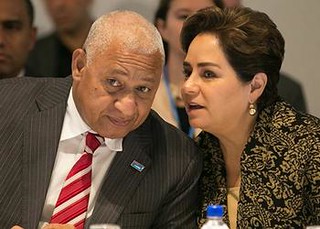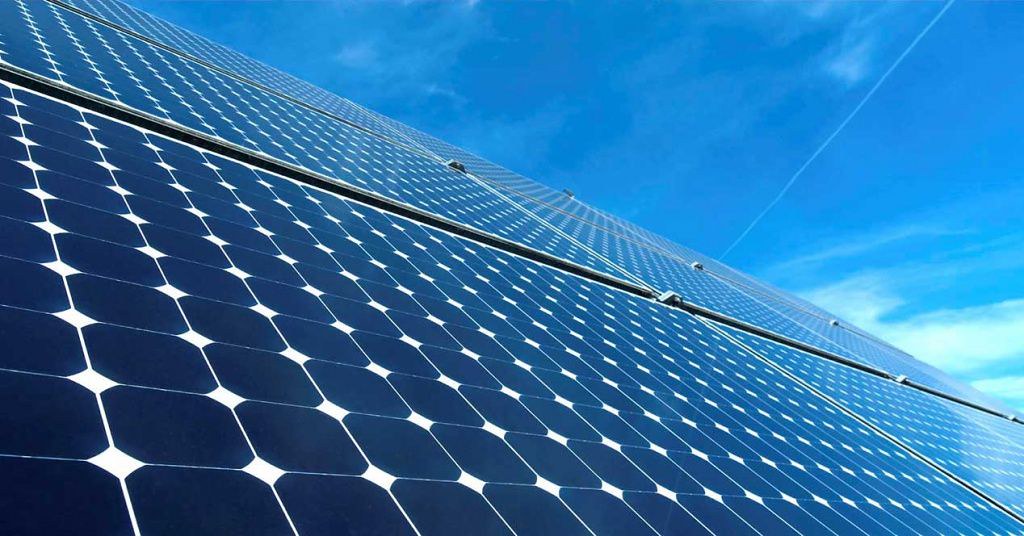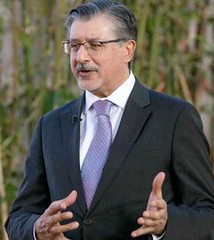
目前正在德國波昂進行的聯合國氣候大會(COP23),會議焦點是預計於2020年全面啟動的巴黎協定。
2015年巴黎協定的目標是保持全球平均氣溫上升幅度遠低於2°C,並儘可能接近1.5°C。不過目前1°C的升溫已經發生了,讓全球轉型乾淨能源更加急迫。
上週五(10日)是大會的「能源日」,當天各國領導人和商業領袖承諾積極行動,並投資數百萬美元於再生能源發展。
能源日由非政府氣候組織Climate Group、國際能源署(IEA)、國際再生能源署(IRENA)和聯合國「人人享有永續能源」(Sustainable Energy for All)倡議共同主辦,是一系列專題行動日的一部分。

國際能源署與13個國家早在大會開幕隔天(7日)宣布啟動「IEA乾淨能源轉型計畫」,這是一項多年度、投資3000萬歐元的計畫,利用IEA在燃料和科技方面的特殊能源專長,協助加速全球轉型乾淨能源,尤其是主要新興經濟體。
在能源日這天,IRENA發表新報告「未開發的氣候行動潛力:國家自主貢獻中的再生能源」(Untapped Potential for Climate Action: Renewable Energy in Nationally Determined Contributions)指出,巴黎協定的國家自主減碳貢獻(即Nationally Determined Contributions,NDC)中再生能源部分落後於實際發展趨勢和國家能源目標,世界各國仍有足夠的空間,以具成本效益的方式,將再生能源發展寫入自主貢獻中,使其符合巴黎協定的長期目標。

IRENA總幹事安明(Adnan Amin)說:「我們的分析顯示,藉由再生能源和提升能源效率,就能在2050年前滿足90%能源系統所需的減排措施,以實現巴黎協定目標,同時推動經濟的發展,改善人類健康和福祉。」
「全球2/3的溫室氣體排放來自能源生產和使用,因此能源產業是因應氣候變遷最重要的部分。而再生能源仍有龐大、可負擔的潛力有待開發,」安明說,「修訂國家自主貢獻使各國有機會重新審視如何挖掘這種潛力,不僅是為了緩解氣候變遷,也考慮到再生能源的多種社會經濟效益以及適應。」
Climate Group是一個在北京、倫敦、新德里和紐約設有辦事處的非營利國際組織。他們發起的EV100計畫是一個全球性的電動運輸計畫,計畫內容是開發全球電動車的購買力,加速電動車與相關基礎建設發展,最終目標是讓電動車成為「新的日常」。
能源日這天,來自三大洲的四大企業加入了EV100,承諾在2030年前將轉型電動運輸,其中包括紐西蘭航空公司、新西蘭電力零售商和電廠Mercury、荷蘭工程和專案管理顧問公司Royal Haskoning DHV,以及日本購物中心開發商永旺集團(AEON Mall)。
自去年COP22的能源日至今,Climate Group與非營利組織氣候資訊揭露計畫(Climate Disclosure Project,CDP)合作主導的影響力企業100%使用再生能源計畫「RE100」,現在已經增加到114個成員。
以永續城市和社群為企業宗旨的英國顧問和建築公司Mace,在10日宣布加入RE100。這間公司預計在2022年前達到全球100%再生能源。
根據Climate Group的計算,這114家公司每年可以創造超過153兆瓦時的再生電力需求,超過波蘭一國所需電力。
※本文與台達電子文教基金會低碳生活部落格合作刊登
National leaders and business leaders pledged ambitious action and millions in funding for renewable energy today at the UN climate talks in Bonn, hosted by the government of Fiji. It’s Energy Day at COP23, the 23rd Conference of the Parties to the UN Framework Convention on Climate Change, UNFCCC, and the focus is on the Paris Agreement, set to be fully operational by 2020.
The central goal of the 2015 Paris Agreement is to keep the average global temperature rise well below 2 degrees Celsius and as close as possible to 1.5 degrees above pre-industrial levels.
About one degree of that rise has already happened, giving urgency to the goal of global clean energy transformation.
Energy Day is organized by The Climate Group, the International Energy Agency, IEA, the International Renewable Energy Agency, IRENA, and Sustainable Energy for All as part of a series of thematic action days.
Thirteen countries and the IEA announced on November 7 the launch of the “IEA Clean Energy Transitions Programme,” a new multi-year, €30 million plan to support clean energy transitions around the world.This new program will leverage the IEA’s unique energy expertise across all fuels and technologies to help accelerate global clean-energy transitions, particularly in major emerging economies.
On Energy Day, IRENA released a new report, which finds that the renewable energy components of current national climate plans under the Paris Agreement, known as Nationally Determined Contributions, NDCs, lag behind actual deployment trends, national energy targets and the cost-effective potential for accelerated deployment.
The report,” “Untapped Potential for Climate Action: Renewable Energy in Nationally Determined Contributions,” shows there is “substantial scope” for countries to cost-effectively increase the renewable energy ambitions set forth in their NDCs so that they are aligned with the long-term goals of the Paris Agreement.
IRENA Director-General Adnan Amin said, “Our analysis shows that renewables and energy efficiency can together provide over 90 percent of the mitigation needed in the energy system by 2050 to achieve the ambitions of the Paris Agreement, while also boosting the economy, creating jobs and improving human health and well-being.”
“Two-thirds of global greenhouse gas emissions stem from energy production and use,” said Amin, “which puts the energy sector front and center of global efforts to combat climate change.”
“We have a large, untapped, and affordable renewable energy potential waiting to be developed. Revising the Nationally Determined Contributions gives countries an opportunity to take a fresh look at how to harvest this potential, not only for mitigation, but in light of the multiple socio-economic benefits of renewables, also for adaptation,” said Amin.
The Climate Group, an international non-profit with offices in Beijing, London, New Delhi and New York, announced new members to its newly launched EV100 campaign, a new global electric transport initiative designed to make electric vehicles “the new normal.”
The campaign is designed to tap global business buying power to fast-track the roll-out of electric vehicles and infrastructure and address rising global transport emissions.
Four major businesses from three continents today joined EV100, pledging to transition to electric transport by 2030. They include the airline Air New Zealand; Mercury, the New Zealand electricity retailer and generator; Dutch engineering and project management consultancy Royal HaskoningDHV, and Japanese shopping mall developer AEON Mall.
Since Energy Day 2016 at last year’s UN climate conference, RE100, a collaborative initiative uniting the world’s most influential businesses committed to 100 percent renewable power, led by The Climate Group in partnership with CDP, has now grown to 114 members.
The international consultancy and construction company, Mace, which strives to create more sustainable cities and communities, has today joined the RE100 campaign. The UK-based company is aiming to achieve 100 percent renewable electricity globally by 2022.
The Climate Group calculates that these 114 companies can create demand for over 153 terawatt-hours of renewable electricity annually, more than enough to power a country the size of Poland.
Its members are sending a signal to policymakers and investors to accelerate the transformation of energy markets, which will eventually see electric vehicles powered by renewable energy.
※ 全文及圖片詳見:ENS








